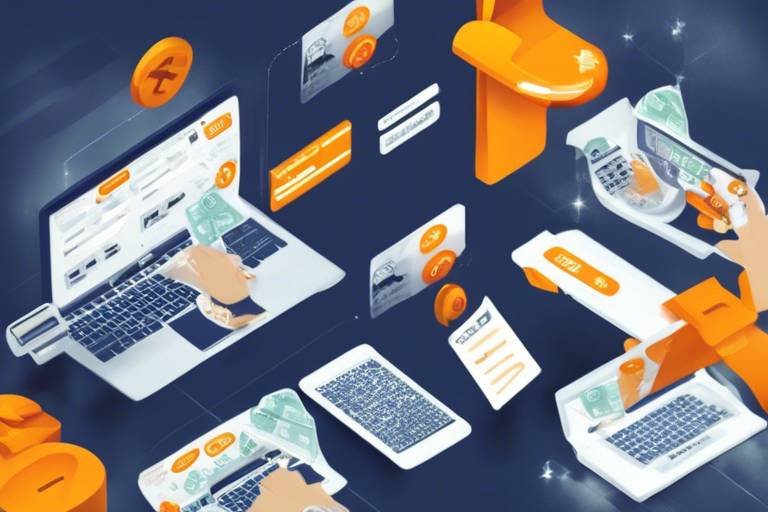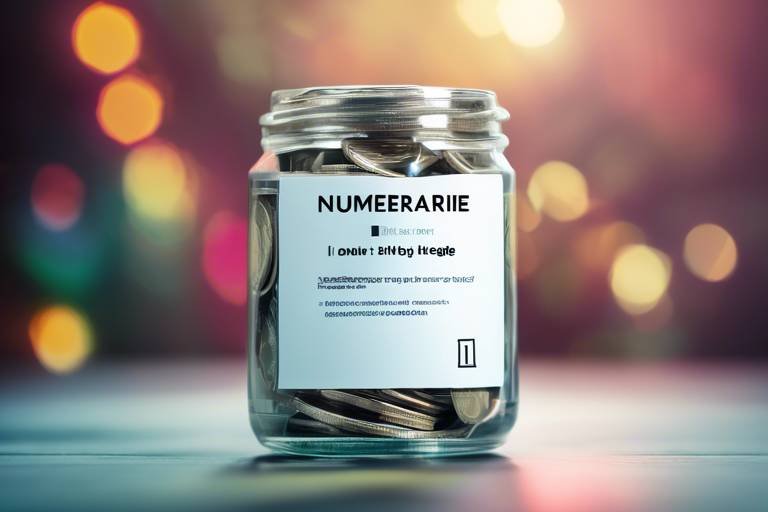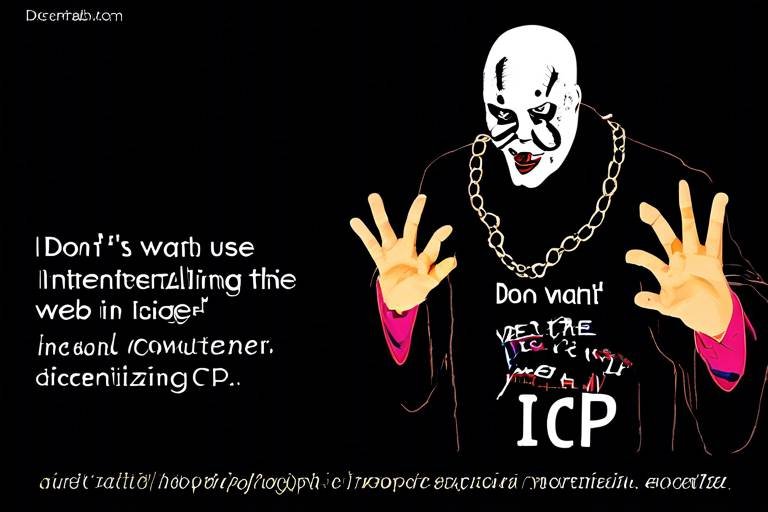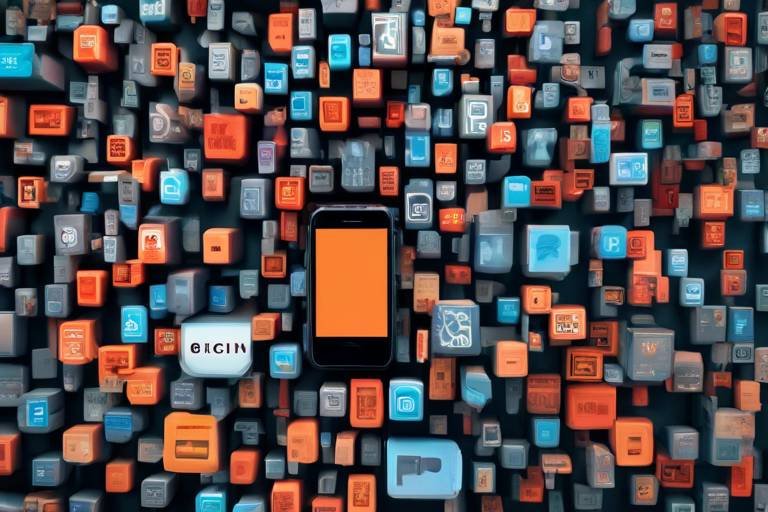Ocean Protocol - Data Sharing and AI Solutions
In today's data-driven world, the way we share and utilize information is evolving at a breathtaking pace. Ocean Protocol stands at the forefront of this transformation, offering a decentralized data exchange platform that harnesses the power of blockchain technology. By enabling seamless data sharing, Ocean Protocol not only enhances artificial intelligence (AI) solutions but also promotes a collaborative data economy. Imagine a world where data ownership is respected, and individuals can monetize their information while contributing to groundbreaking innovations in AI—this is the vision that Ocean Protocol brings to life.
Ocean Protocol is revolutionizing the way data is shared and monetized, enabling individuals and organizations to maintain control over their data while benefiting from collaborative data usage within the AI ecosystem. This platform acts as a bridge, connecting data providers with consumers in a secure and transparent manner. Think of it as a marketplace where data owners can sell their data assets, and buyers can access valuable information without the traditional barriers that often hinder data sharing. The result? A thriving ecosystem where data flows freely, fostering innovation and driving advancements in various sectors.
Understanding the mechanics of Ocean Protocol is essential for grasping its impact. It operates on a decentralized network, utilizing smart contracts to ensure secure and transparent data transactions between providers and consumers. Each transaction is recorded on the blockchain, providing an immutable record that enhances trust among participants. This decentralized approach not only eliminates intermediaries but also empowers data owners to dictate the terms of their data usage.
Decentralization is a core principle of Ocean Protocol, empowering data owners to retain control over their assets while facilitating secure access for data consumers, thereby creating a more equitable data marketplace. In this new paradigm, individuals can share their data without fear of losing ownership or control. This is akin to a farmer selling their crops directly to consumers at a local market, rather than going through a series of middlemen who take a cut of the profits. The farmer benefits from a fair price, and consumers gain access to fresh produce. Similarly, Ocean Protocol enables data owners to reap the rewards of their contributions while ensuring that their rights are protected.
Smart contracts play a pivotal role in automating transactions on Ocean Protocol, ensuring that data sharing agreements are executed precisely as intended, reducing the risk of disputes and enhancing trust among participants. These self-executing contracts operate on predefined conditions, meaning that once the criteria are met, the transaction occurs automatically. Imagine a vending machine: you insert your money, select your item, and the machine delivers it without any human intervention. This is how smart contracts function, making data sharing efficient and reliable.
Ocean Protocol prioritizes privacy and security, employing advanced encryption techniques and privacy-preserving technologies to protect sensitive data, ensuring that data providers can share their information without compromising confidentiality. In a world where data breaches are all too common, Ocean Protocol offers peace of mind. Data is encrypted and can only be accessed by authorized parties, much like a safe that only the owner has the combination to. This robust security framework not only safeguards data but also builds trust in the platform.
Ocean Protocol seamlessly integrates with AI technologies, allowing data scientists and developers to access diverse datasets that enhance machine learning models, driving innovation and improving the accuracy of AI applications. The synergy between Ocean Protocol and AI is akin to a chef having access to a wide variety of ingredients; the more diverse the ingredients, the more creative and delicious the dishes they can prepare. By providing access to a wealth of datasets, Ocean Protocol empowers AI practitioners to develop more sophisticated algorithms and insights.
The versatility of Ocean Protocol is showcased through various use cases across industries, from healthcare and finance to supply chain management, highlighting its potential to unlock value from data assets. Each sector can leverage Ocean Protocol's capabilities to enhance their operations and decision-making processes.
In the healthcare sector, Ocean Protocol enables secure sharing of medical data for research and analysis, improving patient outcomes while ensuring compliance with regulations and safeguarding patient privacy. By allowing researchers to access anonymized patient data, breakthroughs in medical research can occur more rapidly, ultimately leading to better treatments and patient care.
Ocean Protocol provides financial institutions with a platform to monetize their data securely, allowing for better risk assessment and enhanced decision-making processes through access to diverse datasets. This capability not only helps financial institutions to thrive but also contributes to a more stable and informed financial ecosystem.
The future of data sharing is bright with Ocean Protocol, as it fosters a collaborative ecosystem where data can be shared responsibly, driving advancements in AI and creating new opportunities for innovation and growth. As more organizations recognize the value of data and the importance of ethical sharing practices, platforms like Ocean Protocol will play a crucial role in shaping the future landscape of data exchange.
- What is Ocean Protocol? Ocean Protocol is a decentralized data exchange platform that facilitates secure data sharing and enhances AI solutions.
- How does Ocean Protocol ensure data privacy? Ocean Protocol employs advanced encryption techniques and privacy-preserving technologies to protect sensitive data.
- What industries can benefit from Ocean Protocol? Ocean Protocol can be applied across various industries, including healthcare, finance, and supply chain management.
- How do smart contracts work in Ocean Protocol? Smart contracts automate data sharing transactions, executing agreements based on predefined conditions without the need for intermediaries.
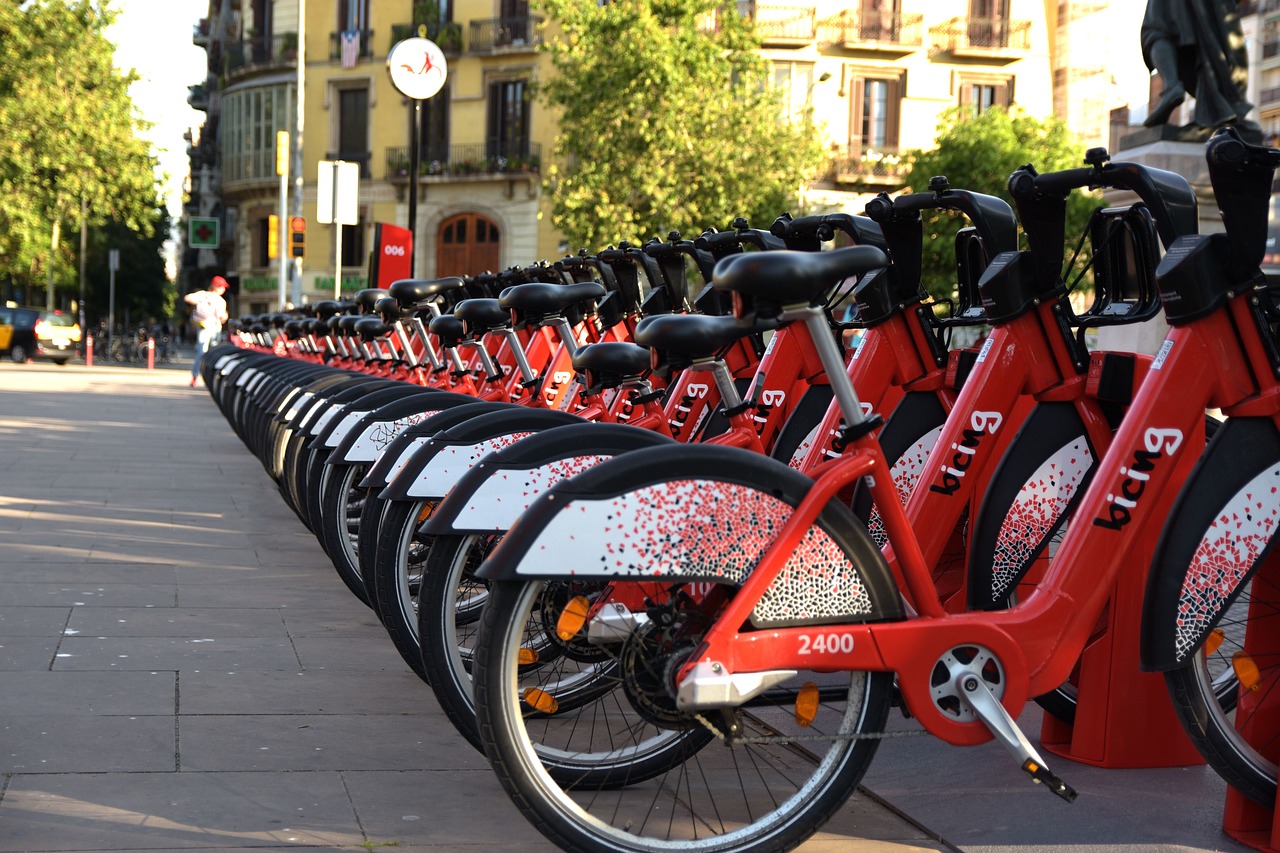
Introduction to Ocean Protocol
Ocean Protocol is revolutionizing the way data is shared and monetized, enabling individuals and organizations to maintain control over their data while benefiting from collaborative data usage within the AI ecosystem. Imagine a world where your data is not just a commodity, but a powerful asset that you can manage, share, and monetize on your own terms. This is the essence of Ocean Protocol, a decentralized data exchange platform that leverages blockchain technology to create a secure and transparent environment for data transactions.
At its core, Ocean Protocol empowers data owners—whether they are individuals, businesses, or institutions—by providing them with the tools to control their data. This is significant because, in today's digital landscape, data is often trapped within silos, inaccessible to those who could benefit from it. Ocean Protocol breaks down these barriers, allowing for a more collaborative data economy where data can flow freely, yet securely.
One of the standout features of Ocean Protocol is its commitment to decentralization. This means that instead of a single entity controlling the data, it is distributed across a network, enhancing security and reducing the risk of data breaches. By utilizing smart contracts, Ocean Protocol ensures that data sharing agreements are executed automatically and transparently. This not only builds trust among participants but also minimizes the chances of disputes arising from miscommunication or misunderstanding.
Furthermore, Ocean Protocol prioritizes privacy and security through advanced encryption techniques and privacy-preserving technologies. Data providers can share their information without the fear of compromising confidentiality, which is crucial in sensitive sectors like healthcare and finance. In essence, Ocean Protocol is not just a platform; it is a movement towards a more equitable and efficient data economy.
As we delve deeper into the workings of Ocean Protocol, it becomes clear that its impact goes beyond mere data sharing. It is about fostering innovation, enhancing AI solutions, and unlocking the true potential of data in a way that is ethical and sustainable. With Ocean Protocol, the future of data sharing looks not only promising but also transformative.

How Ocean Protocol Works
Understanding how Ocean Protocol operates is crucial for appreciating its transformative impact on data sharing and AI solutions. At its core, Ocean Protocol functions on a decentralized network that utilizes blockchain technology to create a transparent and secure environment for data transactions. This decentralized approach not only enhances trust among users but also empowers data owners to maintain control over their assets. Imagine a marketplace where you can sell your data without giving up ownership—this is precisely what Ocean Protocol offers.
One of the key components of Ocean Protocol is its use of smart contracts. These self-executing contracts automate the transaction process, ensuring that data sharing agreements are executed exactly as planned. This automation minimizes the risk of disputes and fosters a sense of trust among participants. For instance, when a data provider lists their dataset on the platform, a smart contract is created to govern the terms of access and payment. Once a consumer accesses the data, the smart contract automatically executes the payment to the provider, streamlining the entire process.
Moreover, privacy and security are paramount in the design of Ocean Protocol. The platform employs advanced encryption techniques and privacy-preserving technologies to safeguard sensitive information. This means that data providers can share their datasets with confidence, knowing that their privacy will be protected. For example, Ocean Protocol utilizes a mechanism called data tokens, which allows data providers to tokenize their datasets. This not only facilitates secure transactions but also ensures that data remains confidential throughout the sharing process.
To illustrate how these elements come together, let’s consider a simplified overview of the process:
| Step | Description |
|---|---|
| 1. Data Listing | Data providers list their datasets on the Ocean Protocol marketplace. |
| 2. Smart Contract Creation | A smart contract is generated to outline the terms of data access and payment. |
| 3. Data Access | Consumers access the data based on the agreed terms. |
| 4. Payment Execution | The smart contract automatically executes the payment to the data provider. |
This structured approach not only simplifies the process of data sharing but also creates a more equitable data marketplace. By leveraging the power of blockchain, Ocean Protocol is paving the way for a future where data can be shared responsibly and effectively, driving advancements in AI and creating new avenues for innovation.
- What is Ocean Protocol?
Ocean Protocol is a decentralized data exchange platform that enables secure data sharing and monetization while maintaining data ownership. - How does Ocean Protocol ensure data privacy?
It employs advanced encryption and privacy-preserving technologies to protect sensitive data during sharing. - What role do smart contracts play in Ocean Protocol?
Smart contracts automate the execution of data sharing agreements, ensuring transparency and reducing disputes. - Can anyone use Ocean Protocol?
Yes, both data providers and consumers can access the platform, making it a versatile marketplace for various industries.
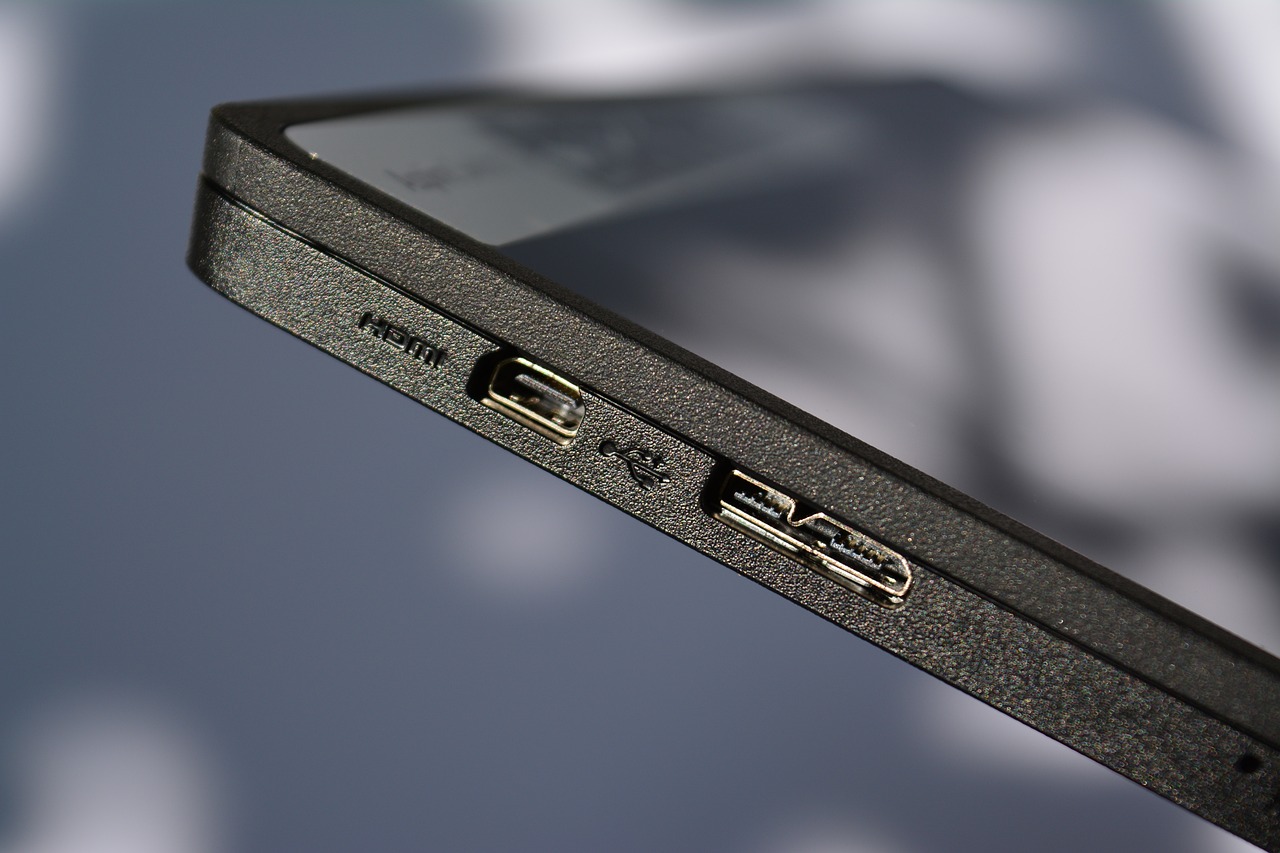
Decentralization and Data Ownership
In a world where data is often seen as the new oil, decentralization becomes a game-changer in how we think about data ownership. Ocean Protocol stands at the forefront of this revolution, allowing individuals and organizations to maintain control over their own data while participating in a broader collaborative economy. Imagine being able to share your data without relinquishing ownership—sounds like a dream, right? Well, that dream is becoming a reality with Ocean Protocol.
The principle of decentralization means that no single entity holds power over the data. Instead, data owners are empowered to decide how their data is used and shared. This shift is akin to moving from a traditional bank where you deposit your money and lose control over it, to a system where you keep your cash in your pocket, only sharing it when you want to. The implications of this shift are profound; it not only protects individual rights but also fosters an environment where data can be utilized more ethically.
Ocean Protocol employs blockchain technology to ensure that every transaction is transparent and secure. This means that when data owners share their information, they can do so with the confidence that their rights are protected. The platform uses smart contracts to formalize agreements, ensuring that the terms of data sharing are clear and adhered to by all parties involved. This is crucial in building trust among users, as they can see exactly how their data is being used and by whom.
Furthermore, the concept of data ownership extends beyond just individual users; organizations can also benefit significantly. For instance, a healthcare institution can securely share patient data for research purposes, while still maintaining control over that data. This allows them to contribute to important medical advancements without compromising patient privacy. By decentralizing data ownership, Ocean Protocol creates a more equitable data marketplace where everyone can benefit from data sharing.
To illustrate the impact of decentralization on data ownership, consider the following table that outlines the differences between traditional data ownership models and Ocean Protocol's decentralized approach:
| Aspect | Traditional Model | Ocean Protocol Model |
|---|---|---|
| Data Control | Centralized control by organizations | Decentralized control by individual owners |
| Transparency | Limited visibility on data usage | Full transparency via blockchain |
| Data Monetization | Organizations profit from user data | Individuals can monetize their own data |
| Trust | Trust in organizations | Trust through smart contracts |
As we move further into the digital age, the importance of decentralization in data ownership cannot be overstated. Ocean Protocol champions this cause, ensuring that data owners retain their rights while still enabling the collaborative sharing of data. This not only enhances individual autonomy but also promotes innovation across various sectors. The future of data sharing is not just about access; it’s about ownership, control, and the ethical use of information.
- What is Ocean Protocol?
Ocean Protocol is a decentralized data exchange platform that allows data owners to share and monetize their data while maintaining control. - How does decentralization benefit data owners?
Decentralization empowers data owners to retain control over their data, ensuring they can decide how and when their information is shared. - What role do smart contracts play in Ocean Protocol?
Smart contracts automate transactions and enforce agreements, reducing the risk of disputes and enhancing trust among users. - Is my data secure on Ocean Protocol?
Yes, Ocean Protocol employs advanced encryption and privacy-preserving technologies to ensure that sensitive data remains confidential.
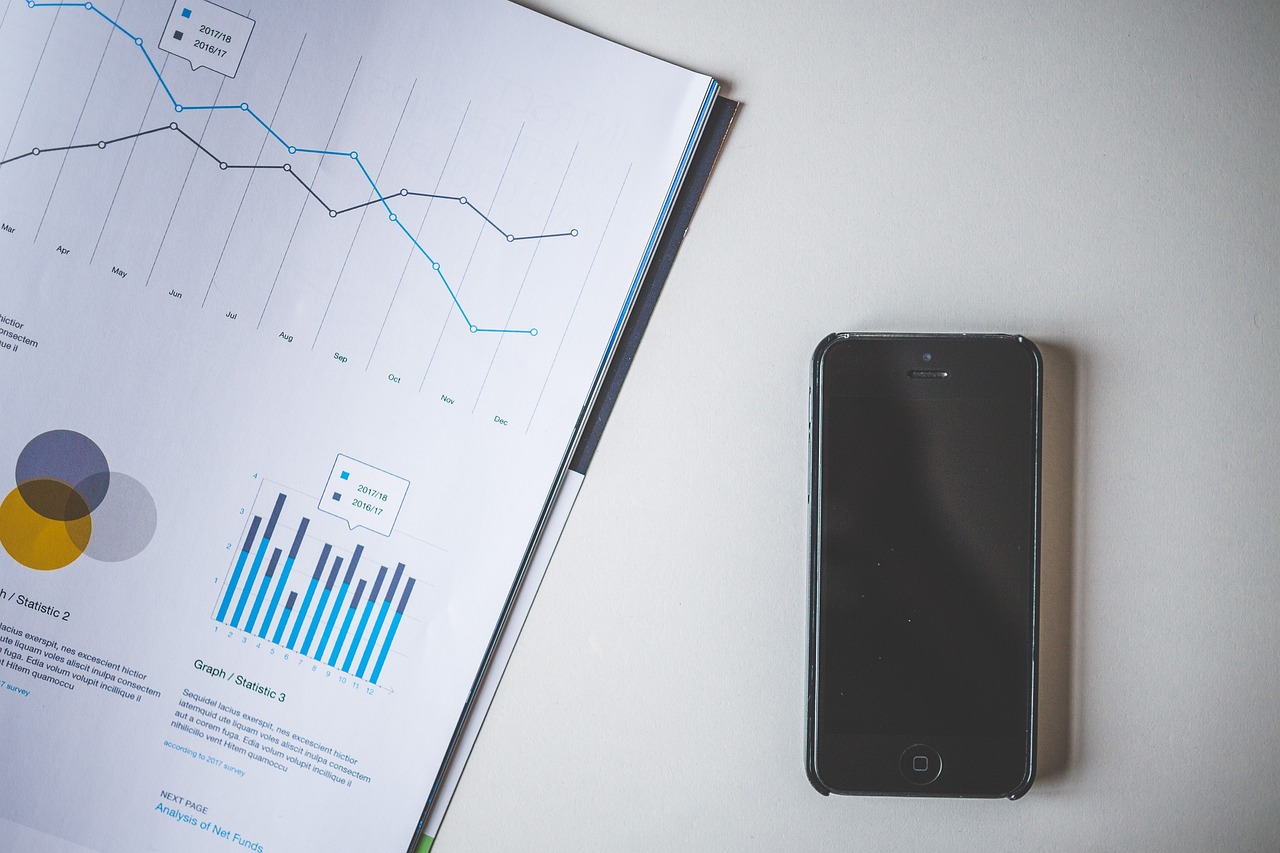
Smart Contracts in Data Sharing
Smart contracts are the backbone of Ocean Protocol's data sharing mechanism. They are self-executing contracts with the terms of the agreement directly written into code. This innovative approach eliminates the need for intermediaries, making data transactions not only faster but also more efficient. Imagine a vending machine: you insert money, make a selection, and the machine automatically delivers your snack without needing a cashier. In the same way, smart contracts automate data sharing processes, ensuring that both data providers and consumers fulfill their obligations without any manual intervention.
One of the most significant advantages of using smart contracts in Ocean Protocol is the enhanced trust they bring to the data marketplace. By utilizing blockchain technology, all transactions are recorded on a public ledger, which means they are transparent and immutable. This transparency helps to build trust among participants, as both parties can verify that the terms of the agreement have been met. For instance, if a data provider shares a dataset under specific conditions, the smart contract ensures that those conditions are strictly adhered to, reducing the risk of disputes.
Moreover, smart contracts facilitate complex agreements that can include multiple conditions and outcomes. For example, a data provider might want to share their data only if certain usage metrics are met. With smart contracts, these conditions can be coded directly into the agreement. If the conditions are satisfied, the contract executes automatically, allowing for seamless data access. This capability opens up a world of possibilities for data sharing, as it allows for more nuanced and tailored agreements that cater to the specific needs of both parties.
Security is another crucial aspect of smart contracts in Ocean Protocol. By automating the data sharing process, the risk of human error is significantly reduced. Additionally, the use of cryptographic techniques ensures that sensitive data remains protected throughout the transaction. Data providers can share their information with peace of mind, knowing that their data is safeguarded against unauthorized access.
In summary, smart contracts are a game-changer for data sharing on Ocean Protocol. They not only streamline the process but also enhance trust and security, paving the way for a more collaborative and efficient data economy. As we continue to explore the potential of decentralized data exchanges, the role of smart contracts will undoubtedly remain pivotal in shaping the future of data sharing.
- What are smart contracts? Smart contracts are self-executing contracts with the terms of the agreement written into code, enabling automated and secure transactions.
- How do smart contracts enhance trust? They provide transparency and immutability through blockchain technology, allowing participants to verify that agreements have been honored.
- What role do smart contracts play in data security? They reduce human error and utilize cryptographic techniques to protect sensitive data during transactions.
- Can smart contracts handle complex agreements? Yes, they can include multiple conditions and outcomes, allowing for tailored data sharing agreements.
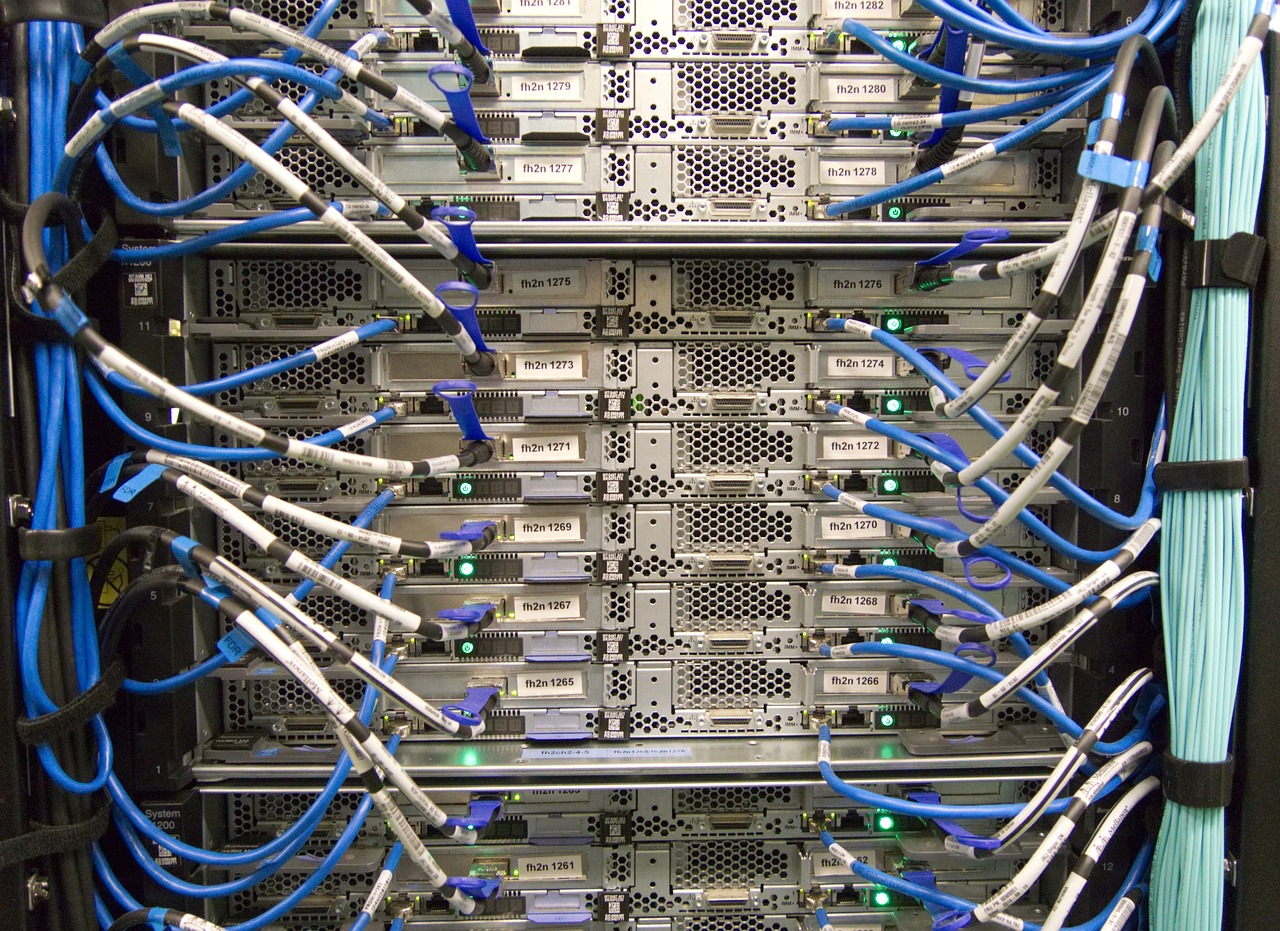
Privacy and Security Measures
In today's digital landscape, where data breaches and privacy concerns are rampant, Ocean Protocol stands out by prioritizing privacy and security in its data-sharing framework. The platform employs cutting-edge encryption techniques that ensure sensitive information is safeguarded from unauthorized access. This means that data providers can share their data without the fear of it falling into the wrong hands. Imagine sharing a precious family recipe with a friend, knowing it will remain confidential and not be misused; that’s the level of trust Ocean Protocol aims to establish.
One of the cornerstone features of Ocean Protocol is its use of privacy-preserving technologies. These advanced methods allow data to be utilized for analysis and machine learning without exposing the raw details. For instance, through techniques like differential privacy, the data can be aggregated and anonymized, ensuring that individual identities remain protected while still enabling valuable insights to be drawn. This approach not only enhances data utility but also builds a robust layer of trust between data providers and consumers.
Furthermore, the architecture of Ocean Protocol is designed with decentralization at its core. This means that data is not stored in a single location, reducing the risk of a centralized data breach. Instead, data remains under the control of its owner, who can decide when and how it is shared. This decentralized approach is akin to having multiple safes scattered across different locations, each containing pieces of information that can only be accessed with the right keys. By distributing data across a network, Ocean Protocol minimizes the risk of a single point of failure, thus enhancing the overall security of the data-sharing process.
To illustrate the effectiveness of Ocean Protocol's privacy and security measures, consider the following table that highlights key features:
| Feature | Description |
|---|---|
| Encryption | Advanced encryption techniques to protect data at rest and in transit. |
| Decentralization | Data remains under the owner's control, reducing the risk of centralized breaches. |
| Privacy-Preserving Technologies | Methods like differential privacy to ensure data can be used without exposing sensitive information. |
| Smart Contracts | Automated agreements that ensure secure and transparent transactions. |
In conclusion, Ocean Protocol's commitment to privacy and security not only protects data providers but also enhances the overall integrity of the data economy. By implementing these robust measures, Ocean Protocol paves the way for a future where data can be shared freely and responsibly, fostering innovation and collaboration across industries.
- What is Ocean Protocol? Ocean Protocol is a decentralized data exchange platform that facilitates secure data sharing, enabling data owners to maintain control while benefiting from collaborative uses.
- How does Ocean Protocol ensure data privacy? The platform employs advanced encryption and privacy-preserving technologies, allowing data to be used for analysis without exposing sensitive information.
- What role do smart contracts play in Ocean Protocol? Smart contracts automate transactions, ensuring that data sharing agreements are executed as intended, thus enhancing trust among participants.
- Can I monetize my data on Ocean Protocol? Yes, data owners can monetize their data securely, enabling them to benefit from their assets while maintaining control over their information.

AI Integration with Ocean Protocol
Ocean Protocol is not just a platform for data sharing; it is a powerful enabler of artificial intelligence (AI). By providing access to a diverse range of datasets, Ocean Protocol allows data scientists and developers to enhance their machine learning models significantly. Imagine trying to build a complex puzzle without all the pieces—this is often the case in AI when data is scarce or fragmented. Ocean Protocol fills that gap, providing the necessary pieces to complete the picture.
One of the standout features of Ocean Protocol is its ability to facilitate data discovery. By utilizing a decentralized network, users can easily find datasets that are relevant to their specific projects. This is crucial because the quality and variety of data directly influence the performance of AI models. For instance, a healthcare AI model trained on a wide array of patient data can yield more accurate predictions and insights than one trained on limited information.
Moreover, Ocean Protocol supports privacy-preserving technologies such as differential privacy and federated learning. These technologies allow AI developers to train their models on sensitive data without ever exposing the raw data itself. This means that organizations can collaborate on AI projects without compromising the privacy of their users. In a world where data breaches are all too common, this feature offers a much-needed layer of security.
To illustrate the impact of AI integration with Ocean Protocol, consider the following use cases:
- Predictive Analytics: Companies can leverage historical data to forecast trends and behaviors, leading to better decision-making.
- Personalized Medicine: By analyzing patient data, AI can help tailor treatments to individual needs, improving outcomes.
- Fraud Detection: Financial institutions can utilize AI to identify unusual patterns in data, helping to prevent fraud before it occurs.
In conclusion, the integration of AI with Ocean Protocol not only enhances the capabilities of AI applications but also fosters a collaborative ecosystem where innovation thrives. By breaking down data silos and ensuring secure access to diverse datasets, Ocean Protocol is paving the way for a future where AI can reach its full potential. The synergy between AI and Ocean Protocol is a game-changer, and it’s exciting to think about the possibilities that lie ahead.
Q1: What is Ocean Protocol?
A1: Ocean Protocol is a decentralized data exchange platform that utilizes blockchain technology to facilitate secure data sharing and enhance AI solutions.
Q2: How does Ocean Protocol ensure data privacy?
A2: Ocean Protocol employs advanced encryption techniques and privacy-preserving technologies, such as differential privacy, to protect sensitive data.
Q3: Can I monetize my data using Ocean Protocol?
A3: Yes, Ocean Protocol allows data owners to monetize their data securely while retaining control over their assets.
Q4: What industries can benefit from Ocean Protocol?
A4: Ocean Protocol can be applied across various industries, including healthcare, finance, and supply chain management, among others.

Use Cases of Ocean Protocol
Ocean Protocol is making waves across various industries, showcasing its versatility and potential to unlock value from data assets. The beauty of this decentralized data exchange platform lies in its ability to connect data providers and consumers seamlessly, fostering an environment where data can be shared responsibly and effectively. Let’s dive into some of the most impactful use cases of Ocean Protocol that are shaping the future of data sharing.
One of the standout applications of Ocean Protocol is in the healthcare sector. Imagine a world where medical researchers can access a treasure trove of anonymized patient data to improve treatments and outcomes without compromising patient privacy. Ocean Protocol enables secure sharing of medical data for research and analysis, ensuring compliance with stringent regulations like HIPAA. By leveraging advanced encryption and privacy-preserving technologies, healthcare organizations can collaborate on groundbreaking studies while maintaining the confidentiality of sensitive information.
In addition to healthcare, the financial industry is also reaping the benefits of Ocean Protocol. Financial institutions often sit on vast amounts of data that can be monetized. With Ocean Protocol, these institutions can securely share their datasets, allowing for better risk assessment and enhanced decision-making processes. By utilizing diverse datasets, banks and financial services can refine their predictive models, leading to more accurate forecasts and improved customer experiences. This not only drives innovation but also fosters a more competitive marketplace.
Moreover, Ocean Protocol is making strides in the supply chain management sector. The ability to share data across multiple stakeholders in a secure manner can significantly enhance transparency and efficiency. For instance, logistics companies can share real-time data about shipments, inventory levels, and delivery times, allowing all parties involved to make informed decisions. This interconnectedness can lead to reduced costs, minimized delays, and improved customer satisfaction. By utilizing Ocean Protocol, businesses can create a collaborative environment that optimizes supply chain operations.
To sum it up, the use cases of Ocean Protocol are as diverse as they are impactful. Here’s a quick overview of some key sectors where Ocean Protocol is making a difference:
| Industry | Use Case | Benefits |
|---|---|---|
| Healthcare | Secure sharing of medical data for research | Improved patient outcomes, enhanced research capabilities |
| Finance | Monetization of financial data | Better risk assessment, enhanced decision-making |
| Supply Chain | Real-time data sharing among stakeholders | Increased transparency, reduced costs, improved efficiency |
As we continue to explore the capabilities of Ocean Protocol, it becomes clear that its potential is boundless. By enabling secure and efficient data sharing across various industries, Ocean Protocol is not just a platform; it's a catalyst for innovation and growth in the data economy. The future is bright, and as more organizations recognize the value of collaborative data usage, we can expect to see even more groundbreaking applications emerge.
What is Ocean Protocol?
Ocean Protocol is a decentralized data exchange platform that leverages blockchain technology to facilitate data sharing and enhance AI solutions, promoting a collaborative data economy.
How does Ocean Protocol ensure data privacy?
Ocean Protocol employs advanced encryption techniques and privacy-preserving technologies to protect sensitive data, allowing data providers to share their information securely.
What industries can benefit from Ocean Protocol?
Industries such as healthcare, finance, and supply chain management are among those that can benefit from Ocean Protocol's secure data sharing capabilities.
Can individuals use Ocean Protocol?
Yes! Ocean Protocol is designed for both organizations and individuals, enabling anyone with data to monetize it while retaining control over their assets.

Healthcare Data Sharing
In today's fast-paced healthcare environment, the ability to share data securely and efficiently can be a game-changer. Ocean Protocol stands at the forefront of this revolution, enabling healthcare providers, researchers, and patients to engage in a collaborative data-sharing ecosystem. Imagine a world where medical data can flow freely between institutions, all while maintaining strict privacy and security standards. This is not just a dream; it is becoming a reality with Ocean Protocol.
One of the standout features of Ocean Protocol is its commitment to patient privacy. By utilizing sophisticated encryption methods and privacy-preserving technologies, healthcare data can be shared without compromising sensitive information. For instance, a hospital can share anonymized patient data with researchers, allowing for groundbreaking studies that could lead to new treatments and improved patient outcomes. This way, data ownership remains with the patients and providers, ensuring that they have the final say over how their information is used.
Furthermore, the platform's decentralized nature ensures that there is no single point of failure or control. This decentralization not only enhances security but also promotes a sense of trust among participants. Healthcare providers can feel confident that their data is secure, while researchers can access the datasets they need to push the boundaries of medical science. The result is a win-win situation that fosters innovation while keeping patient welfare at the forefront.
Consider the following key benefits of healthcare data sharing through Ocean Protocol:
- Enhanced Research Opportunities: Researchers gain access to a broader range of data, enabling them to conduct more comprehensive studies.
- Improved Patient Outcomes: By analyzing shared data, healthcare providers can identify trends and patterns that lead to better treatment plans.
- Regulatory Compliance: Ocean Protocol's architecture is designed to meet stringent healthcare regulations, ensuring that data sharing is both secure and compliant.
Moreover, Ocean Protocol opens up new avenues for collaborative research. For example, multiple hospitals can pool their data to create a larger dataset that can lead to more significant insights into diseases and treatments. This collaborative approach is particularly vital in the fight against global health crises, where timely and accurate data can save lives.
In summary, Ocean Protocol is not just a platform; it is a transformative tool that empowers the healthcare industry to share data responsibly. By prioritizing privacy, security, and decentralization, it creates an environment where data can be used to its fullest potential, ultimately leading to improved healthcare outcomes for all.
- What is Ocean Protocol?
Ocean Protocol is a decentralized data exchange platform that facilitates secure data sharing while ensuring data ownership and privacy.
- How does Ocean Protocol ensure data privacy?
It employs advanced encryption techniques and privacy-preserving technologies to protect sensitive information.
- Can healthcare providers monetize their data using Ocean Protocol?
Yes, healthcare providers can securely share and monetize their data, benefiting from collaborative research and improved patient outcomes.
- Is Ocean Protocol compliant with healthcare regulations?
Yes, the platform is designed to meet strict healthcare regulations, ensuring secure and compliant data sharing.

Financial Data Monetization
In today's fast-paced financial landscape, the ability to monetize data effectively can be a game-changer for institutions. Ocean Protocol provides a robust platform that allows financial organizations to unlock the value of their data while maintaining security and privacy. Imagine a world where banks and financial institutions can share insights without risking sensitive information. With Ocean Protocol, this vision becomes a reality.
Financial data monetization through Ocean Protocol enables institutions to securely share their datasets with third parties, such as fintech companies and researchers, who are eager for quality data to enhance their services. This creates a win-win scenario; financial institutions can generate revenue from their data, while external parties gain access to valuable information that can lead to better products and services.
Consider the following benefits of financial data monetization with Ocean Protocol:
- Enhanced Risk Assessment: By sharing data on credit histories and transaction patterns, financial institutions can help external analysts develop more accurate risk assessment models.
- Improved Decision-Making: Access to diverse datasets allows for better market analysis and forecasting, leading to informed investment decisions.
- Revenue Generation: Institutions can create new revenue streams by licensing their data to third parties, enabling them to leverage their existing assets.
Moreover, the integration of smart contracts ensures that all transactions are executed transparently and securely, minimizing the potential for disputes. These contracts can automatically enforce agreements, ensuring that data providers receive compensation as per the terms agreed upon. This automation not only saves time but also builds trust among participants in the data exchange.
To illustrate the potential of Ocean Protocol in financial data monetization, consider the following table that outlines some key statistics:
| Statistic | Impact |
|---|---|
| Projected Growth of Fintech Industry | Expected to reach $310 billion by 2022 |
| Data Monetization Revenue Potential | Estimated to exceed $1 trillion by 2025 |
| Percentage of Financial Institutions Using Data Sharing | Over 70% are expected to embrace data sharing by 2024 |
As we move forward, the role of data in finance will only become more critical. By leveraging Ocean Protocol, financial institutions can not only safeguard their data but also transform it into a powerful asset. This innovative approach to data sharing not only enhances operational efficiencies but also fosters collaboration across the financial ecosystem, paving the way for groundbreaking advancements.
- What is Ocean Protocol? Ocean Protocol is a decentralized data exchange platform that allows data providers to share and monetize their data securely while ensuring privacy.
- How does financial data monetization work with Ocean Protocol? Financial institutions can share their datasets with third parties through smart contracts, enabling them to generate revenue while maintaining control over their data.
- What are the security measures in place for data sharing? Ocean Protocol employs advanced encryption techniques and privacy-preserving technologies to protect sensitive information during transactions.

The Future of Data Sharing
The future of data sharing is not just promising; it’s downright revolutionary, especially with the advent of technologies like Ocean Protocol. Imagine a world where data flows freely, yet securely, allowing everyone—from businesses to individual users—to benefit from the vast ocean of information available. This is not just a dream; it’s becoming a reality. With Ocean Protocol leading the charge, we can expect a collaborative ecosystem that encourages responsible data sharing while driving significant advancements in artificial intelligence (AI).
As we look ahead, several key trends are shaping the landscape of data sharing:
- Increased Data Ownership: Individuals and organizations are becoming more aware of their rights over data. Ocean Protocol empowers data owners to maintain control, ensuring they can share their data on their terms.
- Enhanced Privacy Measures: With growing concerns about data privacy, Ocean Protocol employs cutting-edge encryption and privacy-preserving technologies. This means that sensitive information can be shared without the fear of it falling into the wrong hands.
- AI-Driven Insights: The integration of AI with data sharing platforms enables faster and more accurate analysis. Businesses can leverage diverse datasets to enhance their decision-making processes, leading to innovative solutions.
Moreover, as more industries recognize the potential of decentralized data sharing, we can expect to see a surge in use cases. For instance, in sectors like healthcare, financial services, and supply chain management, the ability to share and monetize data securely is opening up new avenues for growth and collaboration. Imagine a healthcare provider sharing anonymized patient data for research purposes, contributing to medical breakthroughs while ensuring patient confidentiality. This is the kind of future that Ocean Protocol is paving the way for.
Not only does Ocean Protocol facilitate data sharing, but it also creates a marketplace where data can be bought and sold. This marketplace model fosters innovation and creativity, as developers can access a wealth of data to fuel their AI models. The more diverse the datasets available, the better the outcomes for AI applications. This is akin to a chef having a full pantry of ingredients; the more options available, the more delicious and innovative the dishes that can be created.
As we embrace this future, it’s vital to consider the ethical implications of data sharing. Transparency and accountability must be at the forefront of this revolution. Ocean Protocol’s framework encourages ethical practices, ensuring that data sharing is not only beneficial but also responsible. This is crucial as we navigate the complexities of data ownership and usage rights in an increasingly digital world.
In conclusion, the future of data sharing is bright with Ocean Protocol leading the charge. It’s about creating a collaborative ecosystem that fosters innovation while protecting individual rights. As we continue to explore the potential of decentralized data sharing, we can look forward to a world where data is not just a commodity, but a shared resource that drives progress and creativity.
1. What is Ocean Protocol?
Ocean Protocol is a decentralized data exchange platform that leverages blockchain technology to facilitate secure data sharing and enhance AI solutions.
2. How does Ocean Protocol ensure data privacy?
Ocean Protocol employs advanced encryption techniques and privacy-preserving technologies to protect sensitive data, allowing data providers to share their information without compromising confidentiality.
3. Can anyone use Ocean Protocol?
Yes! Ocean Protocol is designed for individuals and organizations alike, enabling them to share, buy, and sell data securely.
4. What industries can benefit from Ocean Protocol?
Ocean Protocol has versatile applications across various industries, including healthcare, finance, and supply chain management, unlocking value from data assets.
Frequently Asked Questions
-
What is Ocean Protocol?
Ocean Protocol is a decentralized data exchange platform that uses blockchain technology to facilitate secure data sharing. It enables individuals and organizations to maintain control over their data while allowing for collaborative usage within the AI ecosystem.
-
How does Ocean Protocol ensure data privacy?
Ocean Protocol prioritizes privacy by employing advanced encryption techniques and privacy-preserving technologies. This ensures that sensitive data can be shared without compromising confidentiality, giving data providers peace of mind.
-
What role do smart contracts play in Ocean Protocol?
Smart contracts are essential in automating transactions on Ocean Protocol. They ensure that data sharing agreements are executed exactly as intended, reducing disputes and enhancing trust among participants.
-
Can Ocean Protocol be integrated with AI technologies?
Absolutely! Ocean Protocol seamlessly integrates with AI technologies, allowing data scientists and developers to access diverse datasets. This access enhances machine learning models and drives innovation in AI applications.
-
What are some use cases for Ocean Protocol?
Ocean Protocol has a wide range of use cases across various industries, including:
- Healthcare: Secure sharing of medical data for research and analysis.
- Finance: Monetizing data to improve risk assessment and decision-making.
- Supply Chain: Enhancing transparency and efficiency through better data access.
-
How does Ocean Protocol benefit data owners?
Data owners benefit from Ocean Protocol by retaining control over their data assets while monetizing them. The decentralized nature of the platform empowers them to share data securely and transparently, creating a more equitable marketplace.
-
What is the future of data sharing with Ocean Protocol?
The future is promising! Ocean Protocol fosters a collaborative ecosystem where data can be shared responsibly, driving advancements in AI and creating new opportunities for innovation and growth in various sectors.





